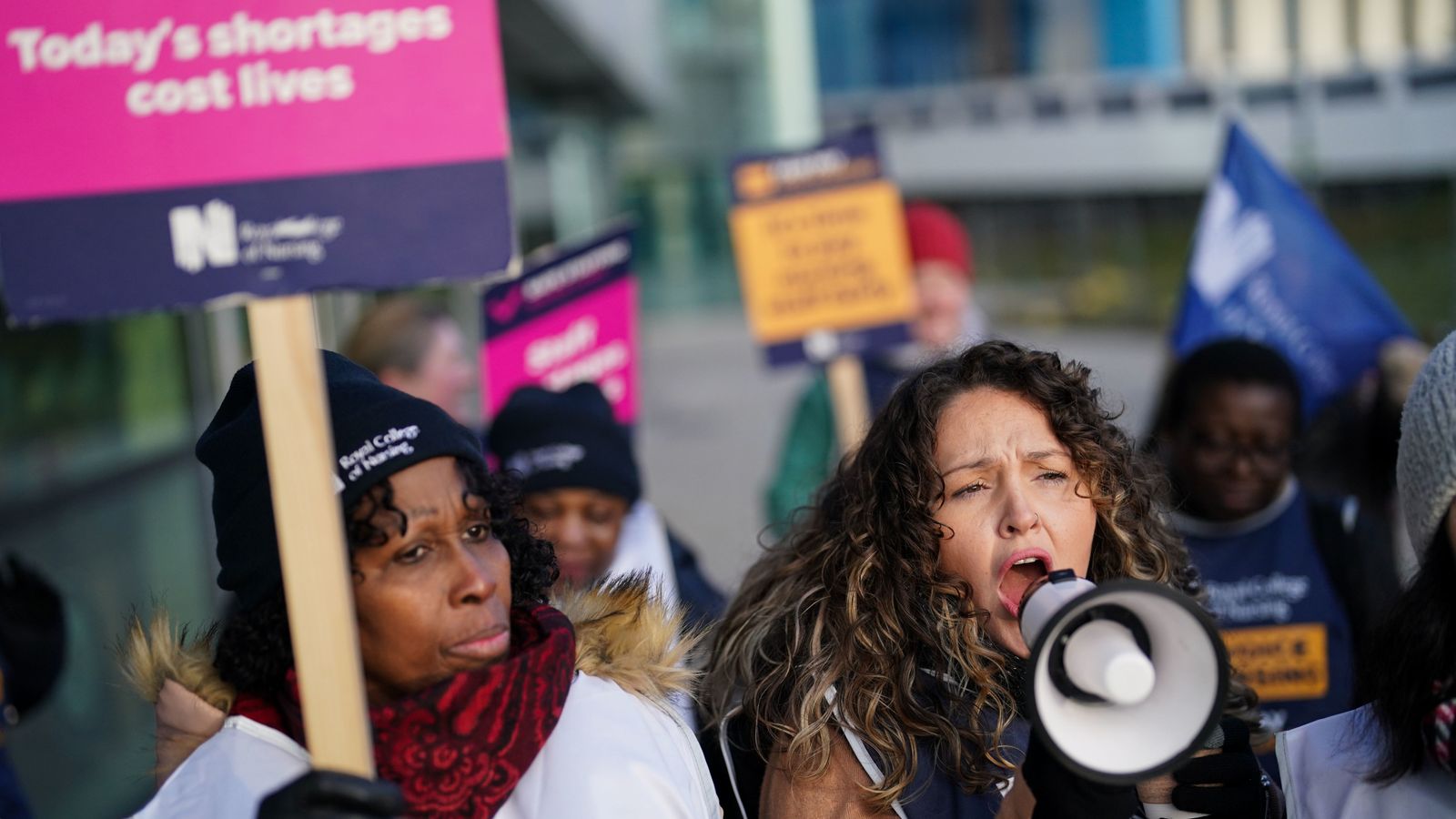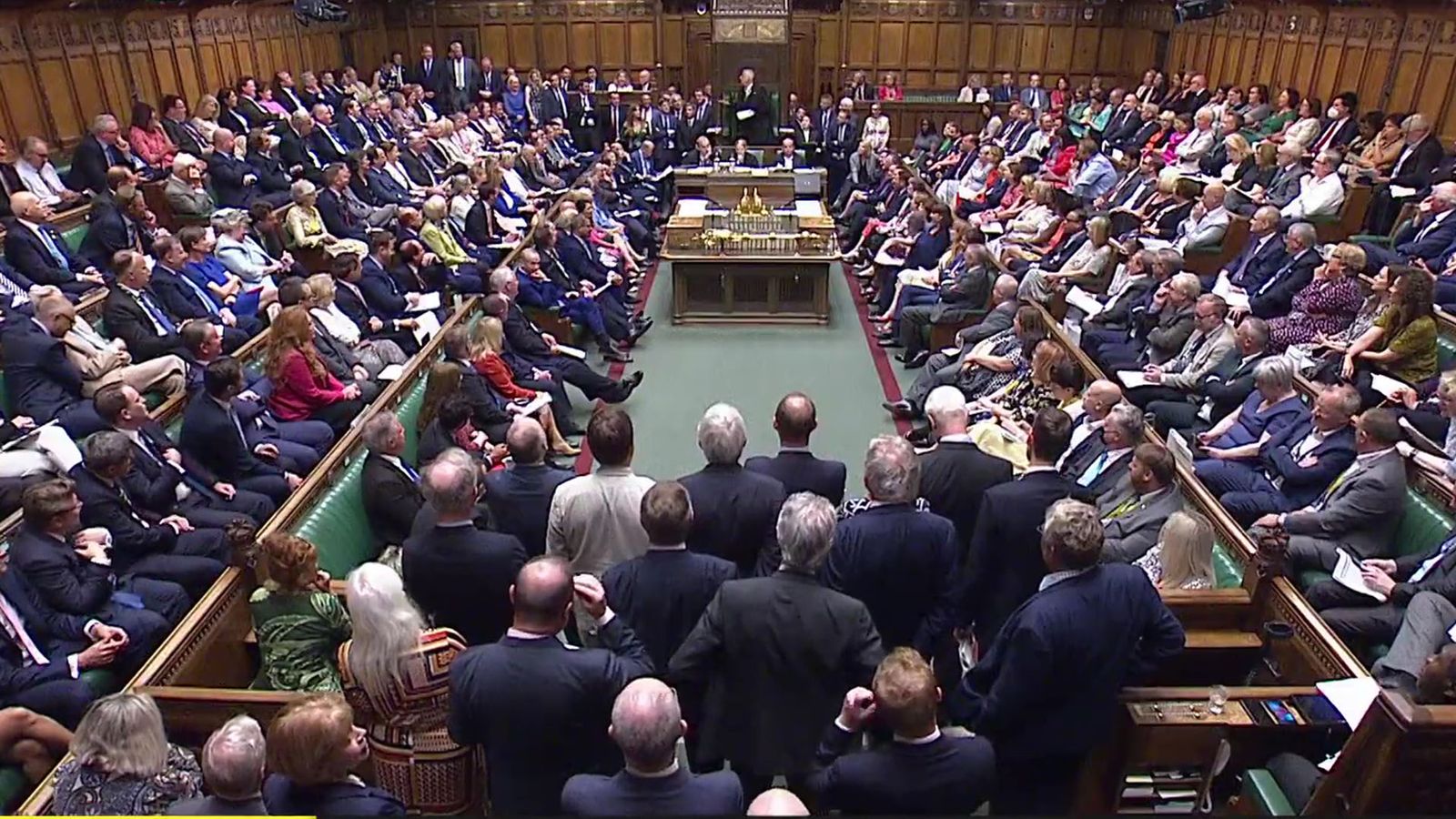Boris Johnson has warned of a “very, very dangerous and difficult situation” as the threat of a Russian invasion of Ukraine leaves the world “on the edge of a precipice”.
The prime minister will chair a full meeting of the government’s emergency COBRA committee on Tuesday to discuss the UK’s response to the current situation in Ukraine.
Meanwhile, Foreign Secretary Liz Truss will chair a separate COBRA meeting today following Friday’s call for all Britons remaining in Ukraine to leave the country while they still can.
Mr Johnson said there was “pretty clear” evidence that Russia is planning an invasion of its neighbour, with some reports suggesting that US intelligence believes military action could begin as soon as Wednesday.
‘We are on the edge of a precipice’
Speaking on a trip to Scotland today – and asked how likely he himself believed an invasion of Ukraine to be – Mr Johnson said: “I think the evidence is pretty clear. You’ve got about 130,000 troops massing on the Ukrainian border.
“There’s all sorts of other signs that show there are serious preparations for invasion.
“We’ve got to respect that, we’ve got to realise this is a very, very dangerous and difficult situation.
“We are on the edge of a precipice.”
However, the prime minister added there was “still time” for Russian President Vladimir Putin to “step back”.
“What we are urging is for everyone to engage in dialogue, for a conversation to take place and for the Russians to avoid what I think everybody – certainly everybody in the UK – can see would be a disastrous mistake, disastrous for Russia,” he said.
Mr Johnson said it was “extremely concerning” that there were signs Russia was “planning for something that could take place as early as the next 48 hours”.
‘The world needs to learn the lessons of 2014’
Ahead of further talks with world leaders, including US President Joe Biden, the prime minister also urged other countries to “learn the lessons” from Russia’s 2014 invasion of Crimea.
“What we need to do is make sure that President Putin understands the economic consequences, the political consequences of doing this,” Mr Johnson added.
“I think what needs to happen is the world needs to learn the lessons of 2014.
“If you remember, Russia took eastern Ukraine, they took Crimea. But we didn’t really do enough to divest, to move away from dependence on Russian hydrocarbons.”
The prime minister called on “all European countries” to reduce their reliance on Russian oil and gas.
‘Get Nord Stream out of the bloodstream’
Referring to pipelines between Russia and Europe, Mr Johnson said European capitals needed to “get Nord Stream out of the bloodstream, yank out that hyperdermic dripfeed of Russian hydrocarbons that is keeping so many European economies going”.
“We need to find alternative sources of energy and we need to get ready to impose some very, very severe economic consequences on Russia,” he added.
Defence Secretary Ben Wallace at the weekend claimed there is a “whiff of Munich in the air” as he compared current attempts at engagement with Russia to 1930s appeasement of Nazi Germany.
NATO membership ‘for the Ukrainian people’
Mr Johnson did not repeat Mr Wallace’s view, but said the defence secretary was “absolutely right to say we’ve got to be strong, we’ve got to be resolute, and we’ve got to be united”.
He also stressed that NATO countries should not compromise with Russia on Ukraine’s ambition for membership of the defence alliance, which has been cited as one of the key reasons behind the current tensions between Moscow and the West.
“It’s very important that we have a dialogue, we have a conversation, but what we can’t do is trade away the sovereign rights of the Ukrainian people to aspire to NATO membership,” the prime minister said.
“It was a massive gain for our world, remember what happend in 1990 – we had a Europe whole and free, countries could decide their own futures.
“We can’t bargain that away. It’s for the Ukrainian people.”
Labour leader Sir Keir Starmer said parliament – which is not sitting this week – should be recalled if Russia invades Ukraine.
He also called for tougher sanctions to be imposed on Russia.
“I will say this: Russia wants to see our allies divided, it wants to see division in the United Kingdom, and we are not going to divide and, therefore, we support the government in what it’s doing.
“We support our allies and the sovereignty of Ukraine but, yes, those sanctions should go further.”



